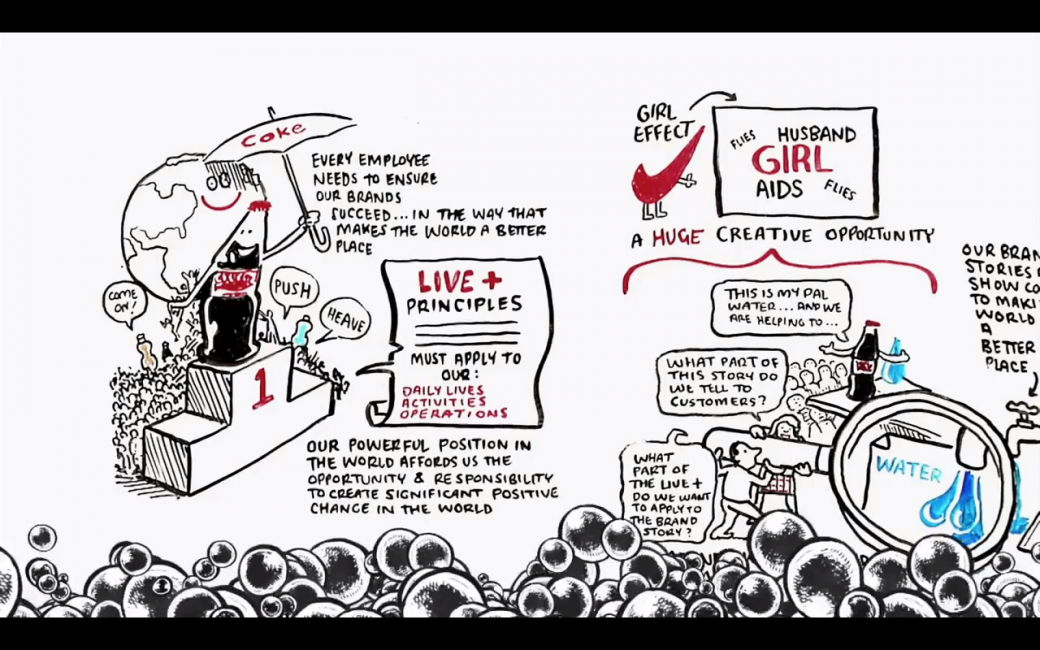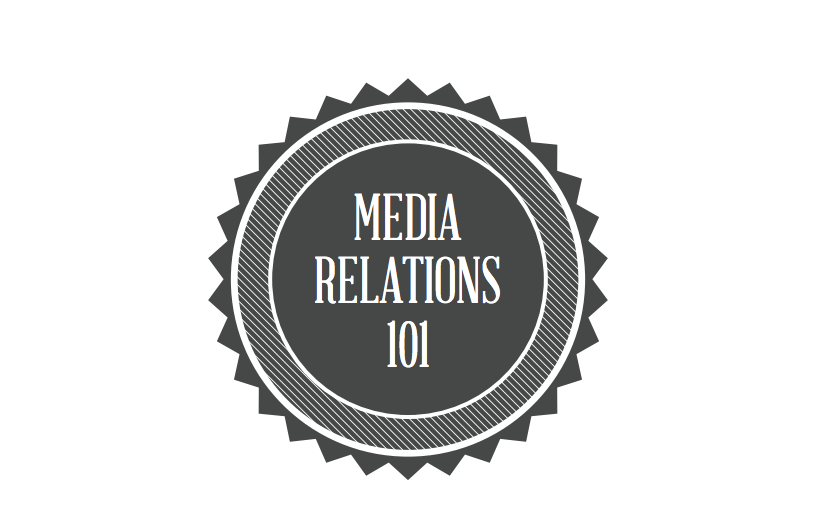I thought last night’s Q&A was going to be a trainwreck.
The Christian panellist, Christian Democrat MP from New South Wales, Fred Nile, isn’t exactly presented in the media as being moderate and nuanced. Lawrence Krauss went toe-to-toe with John Dickson – one of Australia’s most impressive Christian thinkers, and while it was a bit of an agree fest, Krauss showed he was capable of being winsome and engaging. And he was back. The rest of the panel were window dressing for this fight – former British Anglican Bishop, the openly gay Gene Robinson was on as something like the middle ground between the two, and there were a couple of Australian pollies – Amanda Vanstone and Susan Ryan.
I was worried. I wasn’t going to watch. And then I flicked to the ABC at about 9:45. And caught this interaction…
AUDIENCE MEMBER: Hi, there Fred. I want to ask you when the suicide rate is so high in LGBT teens, when you use such hateful and disgusting language about them, do you not feel – or I think maybe you should – feel slightly responsible for some of this that goes on?
FRED NILE: I must object to that because I will give you $1,000 if you can find anywhere where I have said anything which is hateful or vicious about homosexuals. Okay.
TONY JONES: Okay. I think it is time to move on.
Fred was facing a pretty hostile group of panellists – even the other religious guy was against his clear presentation of the historically orthodox understanding of the gospel. He managed to be relatively gracious, speak of God’s judgment, and keep pointing the conversation back to Jesus.
I missed this bit… according to the transcript.
FRED NILE: Because I take, as my authority, Jesus Christ, the son of God, and also the living word and I believe that God gave to us the written word, the holy Bible and as a Bishop you would know the church for 2,000 years and longer has upheld marriage as it is and has also said that homosexuality is immoral and unnatural and so on. So you are going against the teaching of the church so you should be ashamed to be a Bishop and going against the teaching of the church.
TONY JONES: I’m just going to interrupt because…
FRED NILE: I am agreeing with (the transcript says “referring to”) that atheist over there.
That came after Gene Robinson had played down any meaningful distinction between religions.
GENE ROBINSON: I am actually delighted to respond to that question. It is the experience of the living God in my own life. That is why I stick with it. That is why I believe that the church, the synagogue, the mosque can constantly reform itself because God’s will is being revealed to us over time. We are constantly understanding better God’s will and this is one of those places where we are changing what we have believed for 2 or 3,000 years. I believe that scripture is holy in the sense that it is the story of people who have had an experience with the living God and we read it in order to know where to look in our own lives for an experience of the living God. And so I do believe in it. The Church has got a lot to apologise for but, then again, don’t we all? And I believe that this is the way to discern God’s will and I am thrilled to be a part of that.
I also missed this.
AMANDA VANSTONE: So you can be a nice person your whole life and still not get into heaven?
FRED NILE: That’s right. That’s right.
TONY JONES: Just excuse me for one second because…
AMANDA VANSTONE: It is not worth going there.
FRED NILE: Yes.
TONY JONES: …on this table we have two…
FRED NILE: To have eternal life you…
TONY JONES: Excuse me. Excuse me for one minute.
FRED NILE: …have to believe in Jesus Christ as saviour.
TONY JONES: Excuse me for one minute.
FRED NILE: There’s only one way.
Amanda Vanstone came back at him again…
TONY JONES: Just to sort of end this part of the discussion, can I just bring Fred back in here. I mean are you worried if you create an exclusive world where your version of Christianity leaves out people like Gene, that that is actually bad?
FRED NILE: Well, I’m not leaving him out. He is excluding himself. I haven’t left him out. I want him to come in.
TONY JONES: Well, in fact, he’s not excluding himself in the sense that he is a bishop with his own congregation.
FRED NILE: I would like you, at the end of this program, to say, “I believe in what you have just been saying Fred.” I hope he might do that.
LAWRENCE KRAUSS: But all the people who also believe in God but from other religions are also excluded, I presume. So basically you’re an atheist about all the other religions. It’s just yours you’re not. Is that correct?
FRED NILE: I leave it to God. He is the judge and he will judge each person.
LAWRENCE KRAUSS: So, no, but are they excluded? If you’re not a Christian but you, say, you’re a very faithful Muslim or a faithful Jew, are you excluded?
FRED NILE: I’m just saying God will judge them not me.
TONY JONES: Okay. We’ve got a…
FRED NILE: I know God is a loving God and God will be fair in his dealing with each individual.
And kept pushing that “good enough for God” wheelbarrow all the way up the hill.
AMANDA VANSTONE: I don’t know the details of the second case but they would seem, on what you have said, to be inextricably related. I mean the more you have people saying Muslims want to go and kill everybody, the more you have whipping everyone else up into a frenzy of fear and apprehension and a feeling that they must deal with this. So it goes back to what my granny said: if you lead a good life, you will get into any heaven worth getting into and it follows that you – you know, if I get up to Heaven and St Peters says, ‘Gee, you made a mistake and you went to the Anglican Church and you should have gone to a Catholic one or you should have gone to some other church,” I’m going to be bitterly disappointed because I went to a Christian school and I was taught the need to be a good person and not judge people, as you say, on labels. It doesn’t matter if they are Catholic or Anglican or Muslim or whatever. What matters is whether they are a good and decent person and that is how we should be dealing with each other. And once you start this, “Well, they’re Muslims. They want to kill you,” well, you’re separating it out, you’re getting into us and them and you will have battles, ugly ones, where people will be killed.
How wishy washy and meaningless. She didn’t pull her punches after Tony Jones had rung the bell for the end of the evening’s discussion though, hitting out with this low blow that Fred Nile couldn’t reply to.
AMANDA VANSTONE: Fred. Fred, I think I can help you with one thing at least and that is that any God worth following wants converts not conscripts. So religious people should stop looking to parliaments to conscript people into a belief that they don’t adopt.
That’s bad. It’s not very nice. It’s poor form. According to her view of salvation, she should be a little worried now.
Krauss on Labels
This was another bit that showed the intolerance of the New Atheists and the contrast with Jesus… this was in a discussion of the recent events in England…
FRED NILE:… I follow what Jesus said: love your enemies and that is the central teaching of the Christian faith. It’s not a source of violence against people at all.
LAWRENCE KRAUSS: Who are the enemies in this case? I just don’t who the enemy are. Are you saying Islam is the enemy? You know, the problem is…
FRED NILE: Well, whoever is attacking you…
LAWRENCE KRAUSS: Yeah.
FRED NILE: Whoever is attacking you, like in Cairo, burning down the Cathedral, that is your enemy. So you still love them but you try to change that society.
LAWRENCE KRAUSS: Part of the problem here, and I agree with, of course, what you just said, but we label people and religion is a wonderful way of labelling people and making us versus them. And so we don’t see the people, we see them being Christians or Muslims and we hate them because of that and so that’s another reason why, I think, religion gets in the way because it causes us to stereotype people instead of seeing people as individuals with a common humanity…
Tony Jones interrupts with something meaningless… and Krauss gets back on point…
LAWRENCE KRAUSS: The point is that obviously they were driven by hate. My point was that they were not killing that poor young man because they knew him, they knew anything about him. They had already labelled him by a bunch of labels: military, representative of a Christian state that had done supposed atrocities against Islam and that is the kind of labelling that leads people to be able to do these heinous acts because they no longer see people as people but representative of something they hate and that, to me, is one of the real problems of the us versus themness of religious groups that cause other people to no longer be people.
Then he lets this clanger rip. Holy contradiction Batman.
LAWRENCE KRAUSS: Steve Weinberg, who is a physicist and also an atheist, said that there are good people and there are bad people and good people do good things and bad people do bad things. When good people do bad things, it’s religion.
Where Nile went wrong
Nile wasn’t great on the homosexuality question. He was faithful. He tried. He tried to be loving. But he was just outclassed and out of touch on the origins of homosexual orientation. He argued that same sex attraction is a choice because it is changeable – when all that reveals is that change is possible, it says nothing about the origins of the attraction. What was interesting was that Krauss and Robinson had a bit of a disagreement – Robinson, “the gay Gene” (line of the night) suggested same sex attraction is a product of environmental factors that kick in before you’re three, which is consistent with just about everything I’ve read on the topic. Krauss “corrected” him, apparently he’s a biologist now, and there is a gay gene out there. Because some animals are gay. That’ll be news to people who’ve conducted twin studies.
I didn’t love his emphasis on the distinction between the Old Testament and the New Testament – the continuity is greater than the departure, and Jesus affirms the New Testament. It’s hard to present a nuanced account of the narratives of the Old Testament when the dices are loaded like they were in the questions, and when people have pretty strong preconceptions about horrible stories in the Old Testament, as though God affirms what is happening there. Like this exchange. Thanks for your objectivity and literary nuance Tony…
TONY JONES: Just like, in fact, you could take that psalm, which is out of the old testament, which suggests you could dash babies’ heads against rocks as part of a revenge against the Babylonians…
FRED NILE: Well, that’s the point I’m making, that that is no longer relevant in the new testament period. Jesus said that was the old covenant. We’re now under the new covenant.
The answer isn’t that that verse somehow applied literally once upon a time. The answer is to look at genre. Psalms, poetry, aren’t exactly known for being law. The Psalm does not say “you must dash babies’ heads against rocks”… nor is there any evidence that Israel was ever in a position where dashing Babylonian babies against rocks was a possibility. Perhaps, just perhaps, the Psalm is saying that Babylon is really, really, really bad. So bad that people who do things that sound really, really, really, bad to them are commended because they are so bad that such an act is good by comparison. That seems to make more sense of the text than a command to murder babies. Especially in its literary context, and in the narrative context (Israel’s history). Here is the offending verse…
7 Remember, Lord, what the Edomites did
on the day Jerusalem fell.
“Tear it down,” they cried,
“tear it down to its foundations!”
8 Daughter Babylon, doomed to destruction,
happy is the one who repays you
according to what you have done to us.
9 Happy is the one who seizes your infants
and dashes them against the rocks.
This insensitivity to the context of passages in the Old Testament was demonstrated by panellists as well, so Krauss:
LAWRENCE KRAUSS: I am sure we will get to talk more about marriage but I want to go back to the questioner a little bit because it seems to me I actually kind of agree with him a little. I can’t quite understand why you stay in the church. I mean, look, you read the Bible and it’s pretty explicit. You know, there’s that wonderful section, really heart-warming, where Lot is visited by these angels, men and the town’s people want to take him on a raid and he says ‘No, no, rape my daughters instead,’ and, you know, it is one of the wonderful parts of the Bible. And when you read all of this and, you know, you read that men who lay together should be killed and all that, you know you can interpret it all you want but you’re sort of picking and choosing, I think. You decide you want to be a Christian and you throw out the stuff that you don’t like, like I think most Christians do, actually. Throw out the stuff you don’t like, keep the stuff you do. Why not just throw out the whole thing and just be happy and love people and be gay?
Lot’s actions aren’t affirmed in this narrative, you get the sense, if you’re a normal reader, that Lot isn’t held up as a paragon of righteousness here. Description isn’t prescription. This would be like me reading Krauss describing his version of Christian theology and ignoring the context and assuming that’s what he believes…
“People who are loving, caring, good people will go to hell.”
Or perhaps:
“Well, I mean, I actually think the worse crime in the new testament is the crucifixion of Jesus.”
The fuller context of these quotes is more fun than the misquoting game though…
Where Nile got it right – pushing Krauss on Jesus
The best bit of the night, for mine, was how incoherent Krauss looked on Jesus. He lost points a couple of times, and had the twittersphere turning against the snide new atheists with gems like this one…
LAWRENCE KRAUSS: Well, let me jump in and say – I mean we’re all pretending Jesus was this great guy but let’s step back and say this guy also seemed to say if you don’t believe in me you know what, you’ll be condemned. You know you won’t get to heaven. You’ll be condemned eternally to pain and worse than the people in Sodom and Gomorrah, just for not believing in me. What kind of God would you – I mean, you know, what kind of love is that? What kind of love…
FRED NILE: That was the…
LAWRENCE KRAUSS: People who are loving, caring, good people will go to hell for all eternity for choosing – choosing to have the – to use their brains and I find that just, you know.
Then there was this one…
LAWRENCE KRAUSS: Well, I mean, I actually think the worse crime in the new testament is the crucifixion of Jesus. It seems to me amazing that you solve the problems of the world by having someone sacrifice – by having this person violently tortured and sacrificed for the sins of a non-existent forbearer, who made a mistake of taking an apple from a rib-woman. I mean it just doesn’t seem to make sense.
TONY JONES: Okay. All right.
FRED NILE: Jesus was dying for all of our sins. Your sins and my sins and the victim’s sins.
And finally, what I think made the night worth the price of admission… or what would have if I’d paid to be admitted…
FRED NILE: I would just like to challenge Lawrence that the greatest fact is the fact of Jesus Christ.
LAWRENCE KRAUSS: How do you know?
FRED NILE: He is a reality and he came into this world to show us the way of salvation and he said in his own teaching…
LAWRENCE KRAUSS: Is that because he said he did?
FRED NILE: …”Who do you say that I am?” And so the question you have to ask who was Jesus Christ and what is his meaning – what is his meaning, his life to you and his death? You talked about the crucifixion. What does his death mean for you? And it’s a source of salvation. He died for our sins, the sins of the world.
LAWRENCE KRAUSS: Well, you know, when someone tells me they’re God I tend not to believe it. Okay. But, you know…
FRED NILE: But have you studied…
LAWRENCE KRAUSS: Hold on.
FRED NILE: Are you open-minded enough as a scientist…
LAWRENCE KRAUSS: I’m not even sure he was real, to tell you the truth.
FRED NILE: …to study – to study Jesus Christ and to study the new testament?
MULTIPLE SPEAKERS TALK AT ONCE
FRED NILE: Are you open-minded enough, I just…
TONY JONES: Fred. Fred. Fred.
FRED NILE: …would like you to give me…
LAWRENCE KRAUSS: When I was a kid…
TONY JONES: Can I just put this to you, the counterpoint: Are you open-minded enough to accept the Muslim position that Mohammed is the greatest man in history?
FRED NILE: I don’t believe he is the greatest man in history in the same way Jesus Christ was. Jesus Christ was the son of God and…
LAWRENCE KRAUSS: But that’s because you have decided he is.
FRED NILE: But that’s factual history. You can actually study that.
LAWRENCE KRAUSS: Factual history?
FRED NILE: There are documents, there are historical documents, that show that. It’s not a myth.
LAWRENCE KRAUSS: That show what: that he existed or he is the son of God?
FRED NILE: That he existed and how he was born and so on.








